Search
Did you mean: Thera?
Summary 
Loading AI-generated summary based on World History Encyclopedia articles ...
Search Results
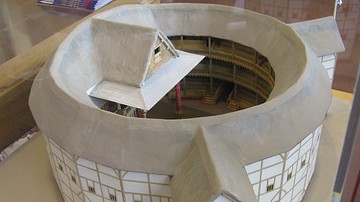
Definition
Elizabethan Theatre
Elizabethan theatre, sometimes called English Renaissance theatre, refers to that style of performance plays which blossomed during the reign of Elizabeth I of England (r. 1558-1603) and which continued under her Stuart successors. Elizabethan...
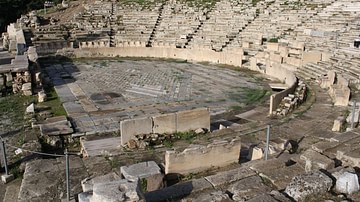
Article
Theatre of Dionysos Eleuthereus
The theatre of Dionysos Eleuthereus on the south slope of the acropolis of Athens was first built in the 6th century BCE. Modified and expanded over the centuries, it is the oldest Greek theatre and is the site where some of the most famous...
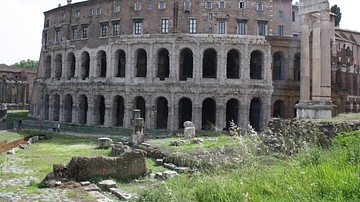
Article
Theatre of Marcellus
The theatre of Marcellus was the largest and most important theatre in Rome and completed in the late 1st century BCE during the reign of Augustus. The architecture of the theatre would become a standard feature of theatres across the empire...

Definition
Ancient Greek Theatre
Greek theatre began in the 6th century BCE in Athens with the performance of tragedy plays at religious festivals. These, in turn, inspired the genre of Greek comedy plays. The two types of Greek drama would be hugely popular and performances...
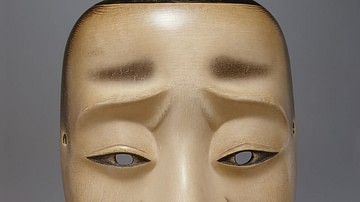
Definition
Noh Theatre
Noh (Nō) theatre is a Japanese performance art which became especially popular from the 14th century CE and which is still performed today. Noh actors, who were always male in the medieval period, famously move and make gestures in a very...

Article
Greek Theatre Architecture
The ancient Greeks built open-air theatres where the public could watch the performances of Greek comedy, tragedy, and satyr plays. They then exported the idea to their colonies throughout the Aegean so that theatres became a typical feature...
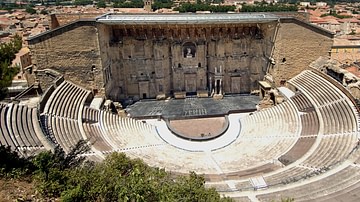
Article
The Roman Theatre of Orange
The Roman theatre of ancient Arausio (modern day Orange in southern France) is one of the best-preserved examples from antiquity. Built in the 1st century CE, it once had capacity for 9,000 spectators and is dominated by its massive stage...

Image
Theatre of Delphi
The theatre of Delphi and the temple of Apollo below (4th century BCE). The capacity of the theatre was around 5,000 spectators.

Image
Theatre of Dionysos Eleuthereus, Athens
The 4th century stone version of the Theatre of Dionysos Eleuthereus, on the slopes of the acropolis of Athens. The theatre was orginally constructed in the 6th century BCE.

Image
Theatre of Petra
Carved into the side of the mountain at the foot of the High Place of Sacrifice, the theatre of Petra consists of three rows of seats separated by passageways. Seven stairways ascended the cavea (seating section) which accommodated 4000 spectators...